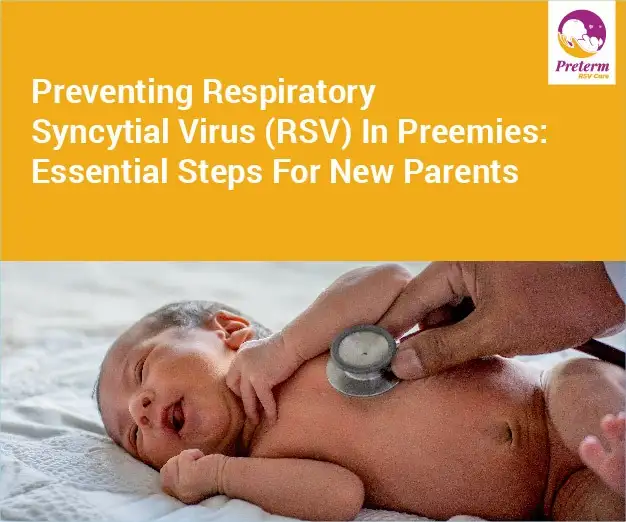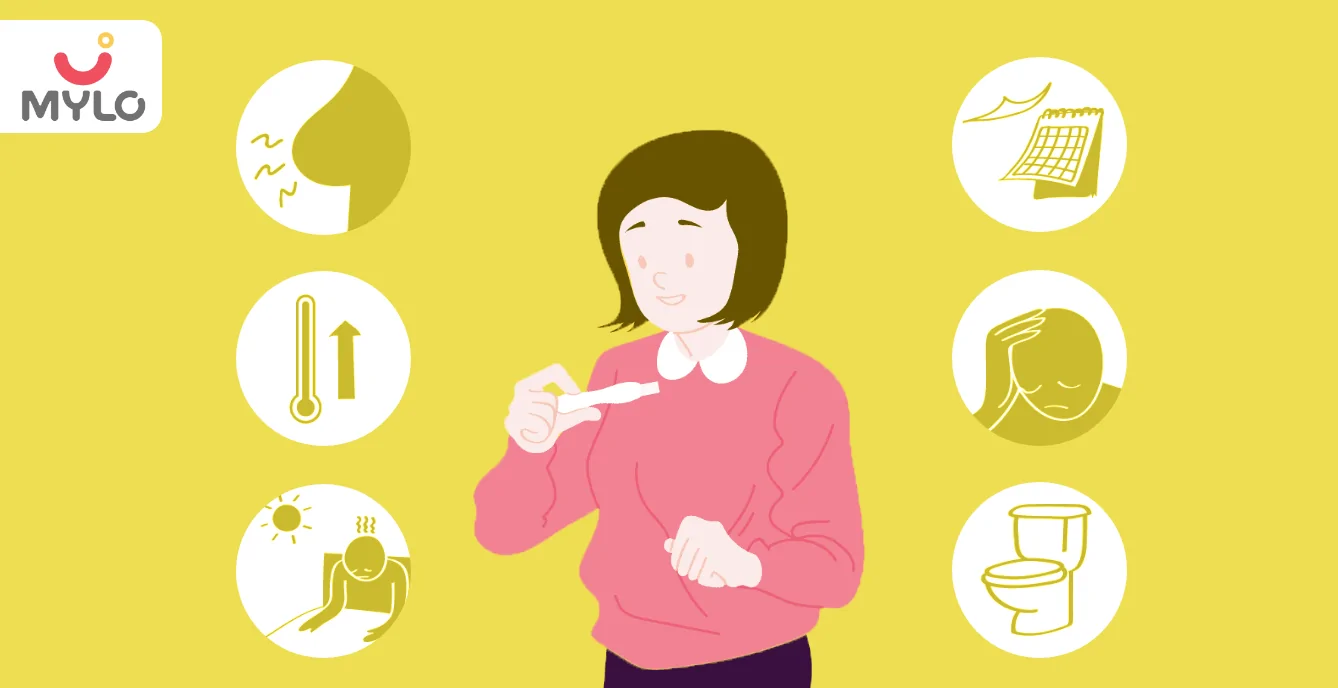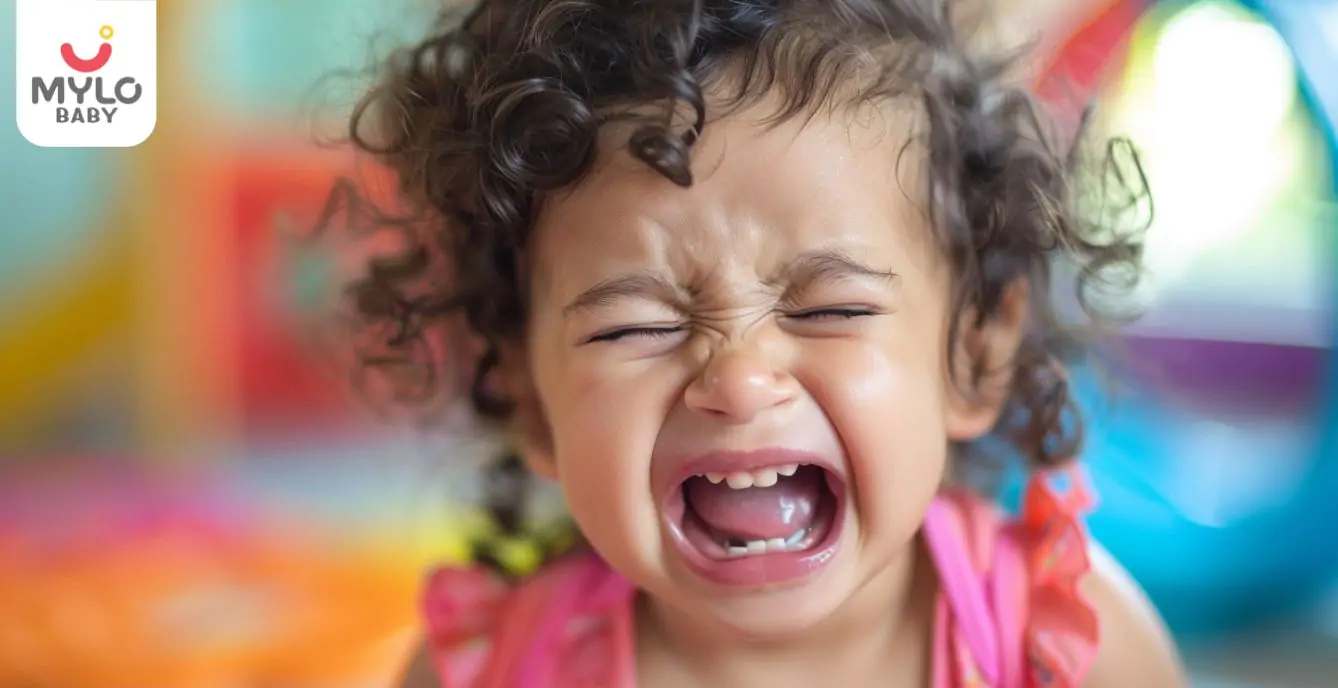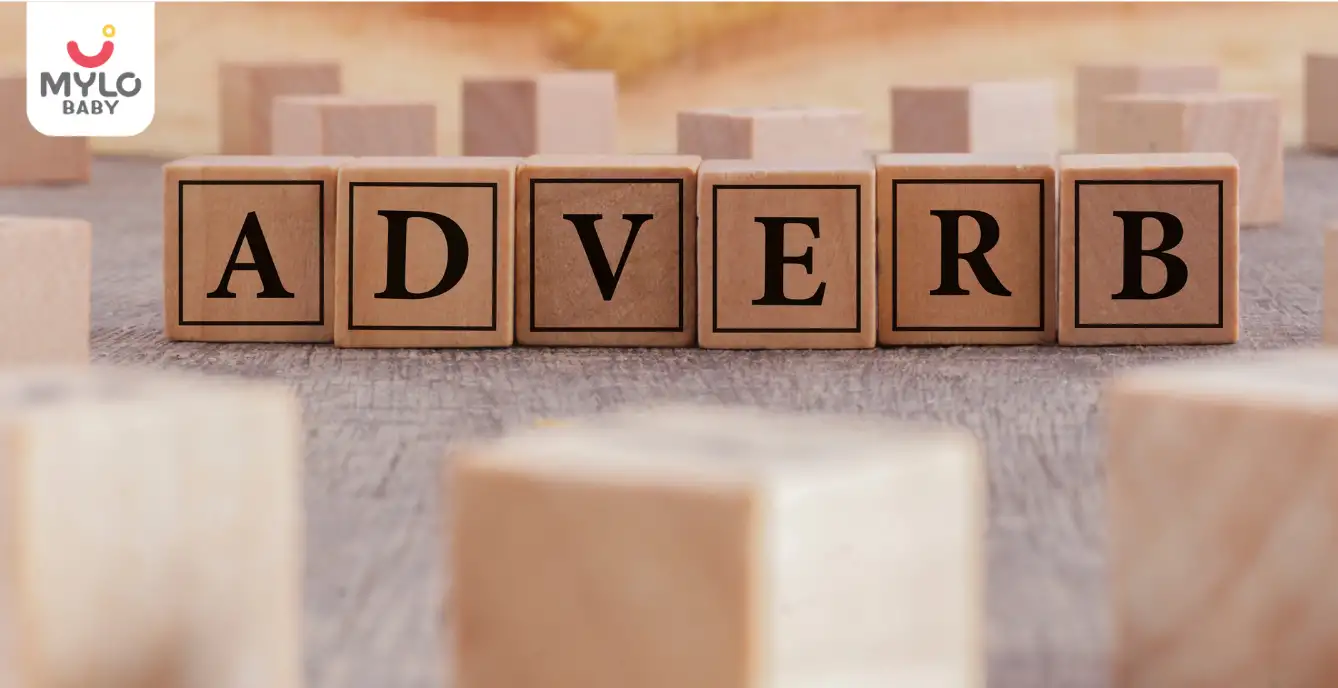Home

Growth & Development

Preventing Respiratory Syncytial Virus (RSV) In Preemies: Essential Steps For New Parents
In this Article
Growth & Development
Preventing Respiratory Syncytial Virus (RSV) In Preemies: Essential Steps For New Parents
Updated on 29 January 2025

Preventing Respiratory Syncytial Virus (RSV) In Preemies: Essential Steps For New Parents
According to World Health Organization data, in 2020, 1 in 10 babies was born prematurely, and this number has only risen since then. Premature babies, or preemies, are infants born alive before completing 37 weeks of pregnancy. Unfortunately, these babies are constantly at risk of contracting life-threatening diseases due to their underdeveloped immune system, with Respiratory Syncytial Virus (RSV) being one of the most severe concerns.
RSV in infants is a leading cause of respiratory illness, which, if left untreated, can prove fatal to your little one.
In this article, we will explore the crucial topic of RSV in babies, particularly those born prematurely, the symptoms to watch out for, and steps parents can take to protect their young one from this condition.
What Is RSV?
Respiratory Syncytial Virus or RSV is a virus that mainly targets the lungs and respiratory airways. Being highly contagious, it spreads through respiratory droplets released when an infected person coughs or sneezes. While RSV often appears as a mild cold in many babies, it can lead to severe complications, such as breathing difficulties, in some newborns. Preterm infants, babies under six months of age, and children with preexisting health conditions are at the highest risk for serious RSV complications, which can sometimes be life-threatening.
Preventing RSV In Infants
RSV is a respiratory infection that can severely impact the health of newborns, particularly those born prematurely. Here are some preventive measures parents should take to protect their little ones from this potentially life-threatening condition.
- Limit Exposure To Sick People
To prevent RSV in babies, limit contact with sick individuals, as it spreads through coughing, sneezing, and shared surfaces. Kindly ask guests and family members to wash their hands before touching or holding the baby, especially the premature ones.
- Breastfeed Your Newborn
Breastfeeding offers valuable benefits, such as providing antibodies that help protect your baby from infections. For premature babies, breast milk is especially important in boosting their immune system and reducing the risk of respiratory infections like RSV. If breastfeeding isn't an option, speak with your pediatrician about other ways to provide your baby with the essential nutrition and immune support they need.
- Maintain Hand Hygiene
Handwashing is one of the best ways to prevent RSV and other infections. Anyone handling your baby should wash their hands with soap and water for 20 seconds, especially after being in public. If that's not possible, use a hand sanitizer with at least 60% alcohol. Regularly sanitize surfaces like doorknobs, countertops, and items used by your baby to help reduce the spread.
- Avoid Crowded Places
RSV tends to peak in India from June to October, with another spike seen in the months of December to February. For parents of premature babies, this is a crucial time to avoid crowded places where the virus can spread quickly. Ensure that you protect your little one by keeping them in a clean, sanitized environment, and minimizing outside contact.
- Consult Pediatrician
When it comes to helping you protect your preemie from RSV, your pediatrician is an invaluable resource. If you notice any of the RSV symptoms in your baby, consult your pediatrician immediately. Additionally, ask about RSV treatment and preventive shots that can help shield your baby from the virus.
Symptoms Of RSV In Newborn
It is crucial for parents to understand that RSV is much more than just a common cold. While healthy children can often recover from it without serious issues, RSV can have a profound impact on the health of premature babies.
Here are some symptoms of RSV in newborns that parents should watch for:
- Wheezing
- Fever
- Nasal congestion
- Rapid breathing
- Fussiness or irritability
- Cough
- Decreased appetite
- Minimal interest in activities
Although RSV typically causes a mild, cold-like sickness, it can also induce more serious conditions like:
- Bronchiolitis
- Pneumonia
Why Preterm Babies Are At Greater Risk Of RSV?
Preterm babies are more vulnerable to RSV due to the following reasons.
- Immature immune system
- Underdeveloped lungs
- Weaker respiratory muscles
- Increased oxygen needs
- Delayed development of antibodies
The Final Word
RSV can be a serious health threat to premature babies, but with the right precautions, parents can greatly reduce the risk. By staying proactive, practicing thorough hygiene, and seeking preventive care, you can protect your baby from the harmful effects of this contagious virus, ensuring they stay healthy and strong during this crucial time.
This initiative by AstraZeneca is dedicated to raising awareness about RSV. For more valuable insights and expert tips, visit Facebook and Instagram Or click on the icons below
Approval ID: IN-15407
Expiry Date: 09/12/26
References:
- https://my.clevelandclinic.org/health/diseases/rsv-in-babies-children
- https://www.mayoclinic.org/diseases-conditions/respiratory-syncytial-virus/symptoms-causes/syc-20353098
- https://pubmed.ncbi.nlm.nih.gov/26457970/
- https://kidshealth.org/en/parents/rsv.html
- https://www.healthychildren.org/English/health-issues/conditions/chest-lungs/Pages/RSV-When-Its-More-Than-Just-a-Cold.aspx
- https://www.cdc.gov/rsv/infants-young-children/index.html
- https://www.who.int/news-room/fact-sheets/detail/preterm-birth#:~:text=Overview,(32%20to%2037%20weeks).
- https://www.cdc.gov/clean-hands/about/index.html



Written by
Priyanka Verma
Priyanka is an experienced editor & content writer with great attention to detail. Mother to an 11-year-old, she's a ski
Read MoreGet baby's diet chart, and growth tips

Related Articles
Related Topics
RECENTLY PUBLISHED ARTICLES
our most recent articles

Growth & Development
How Respiratory Syncytial Virus (RSV) Impacts Premature Babies Differently: What Every Parent Needs To Know

Health & Wellness
Unlocking the Hidden Potential: 8 Incredible Shatavari Powder Uses for Men and Women

Hormones
Are You Aware of These 11 Early Signs and Symptoms of Pregnancy?

General Father
Top 5 tips to build a budget-friendly nursery for your little one

Teething
Toddler Teething: What to Expect and How to Help

Early Education
Adverbs: A Comprehensive Guide to help small children learn the usage of adverbs
- Expand Your Child's Vocabulary with words that start with X: Easy, Positive, and Engaging Words, Animals, Countries, and Fruits
- Unlocking Language Proficiency: The Ultimate Guide to Top 100 Sight Words for Kindergarten and Beyond
- Exploring Common Words that Start with P to Enhance Vocabulary in Small Children
- 100+ Common Words that start with L to Enhance the Vocabulary of Small Children
- 100 Common Words that start with 'C' for Small Children
- List of 100+ Common Words that start with 'D' for Small Children
- 100 Common Words that start with 'S' for enhancing vocabulary in small children
- List of Most Common Words that start with v for small children
- Common Words that start with n for enhancing learning in small children
- Words that start with O for early learning in small kids
- 100 Common words that start with 'R' for Small Kids
- 100 Common words that start with 'U' for Small Kids
- Common words that start with Y for Vocabulary Enhancement in Small Children
- List of Common Q Words to Enhance Small Children's Vocabulary


AWARDS AND RECOGNITION

Mylo wins Forbes D2C Disruptor award

Mylo wins The Economic Times Promising Brands 2022
AS SEEN IN

- Mylo Care: Effective and science-backed personal care and wellness solutions for a joyful you.
- Mylo Baby: Science-backed, gentle and effective personal care & hygiene range for your little one.
- Mylo Community: Trusted and empathetic community of 10mn+ parents and experts.
Product Categories
baby carrier | baby soap | baby wipes | stretch marks cream | baby cream | baby shampoo | baby massage oil | baby hair oil | stretch marks oil | baby body wash | baby powder | baby lotion | diaper rash cream | newborn diapers | teether | baby kajal | baby diapers | cloth diapers |






